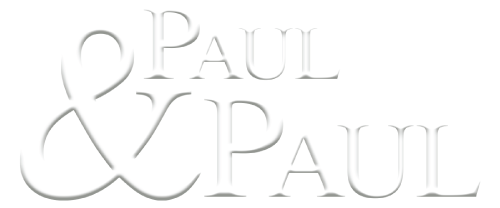Meeting with a patent attorney is an important step in validating your invention. Being prepared will increase your chance of finding the right attorney.
How Do You Prepare For a Meeting With a Patent Attorney?
I found my friend Tony frantically searching through the Yellow Pages the other night. He was one of the nerds in my class back in college.
Always wanting to go green and get rid of plastic, he had invented something along those lines and was looking for a patent attorney or patent agent (people who are authorized to practice law for the US Patent and Trademark Office). Research on the topic told me that there are a few things that you need to know before you consult with a Philadelphia patent attorney.
Primarily, a patent attorney or patent agent must have a degree in a technical discipline like engineering, chemistry, pharmacology or similar. This is important to understand the technical aspect of the inventor’s invention. So how do you prepare for a meeting with a patent lawyer? Here are some tips:
Confidentiality: Federal regulations require that patent attorneys maintain a confidentiality record for all clients. The rule applies to both existing and prospective client. You are considered a prospective client if you approach a patent attorney looking for information, advice or direction regarding the product that you want to patent.
But, if you are just speaking with the lawyer without revealing too much information about your product you need not sign an agreement. Most patent agents or attorneys generally keep the first meeting non-confidential. This is because the attorneys need to understand what you are seeking and make sure that your patent does not have any conflicting ideas with clients they are already representing.
Preparing for the meeting: When you take your invention to a patent attorney, it’s important to make sure that you have all the right material to explain your invention. Incoherent rambling will very likely confuse the attorney, and the attorney may lose interest in your product. So preparation is very important for a patent meeting.
Here are some ways you can prepare:
- Obviously, the patent agent has no idea about your invention, so start by giving some background information before you jump into the actual product information.
- Pictures can say a lot about your product so give information about your product through pictures. Diagrams also help if your product is a machine.
- Be prepared to answer all the questions that you will be asked. If you cannot answer questions about your own invention, then people will not take you seriously. Additionally, be cohesive when you talk about your product.
Payment: As an inventor, you would think that you can pay your attorney after your invention gets a market as you probably already have put in a lot of dollars for your invention. Unfortunately, that is not the case. Sadly most inventions do not make a lot of money (that should not stop you from inventing!).
An attorney will take your case on a contingency basis only when they are sure that your invention will bring in some money when it is patented in the market — hence the popularity of contingency cases. Payments can be worked out with your attorney on a partnership basis where both you and your lawyer will make money once your product is in the market.
Choosing the right attorney: Ask for a recommendation before you meet your attorney or agent. People who have already gone through the process can give you the right tips and suggestions.
It is OK to meet a few attorneys and agents before deciding on one. Everyone has a specific budget (even large companies) so it fine to “shop around” for an attorney.
A good attorney will be able to guide you through the process of the application, from how much it would cost you to file for a patent to how it can be marketed with minimal information. You can even use the USPTO’s website to look for recommendations.
The thing which can put an attorney off is when you compare their rates with others. So watch out as you may lose a good attorney in this process.
Be informed and be realistic: Patenting an invention takes time and patience. So be informed about the time frame that may be required to get your invention patented.
Being informed about the rules and regulations about patenting will help you work with your attorney hand in hand and help you take the right decisions. You can visit www.uspto.gov to get all the latest and updated information regarding patenting a product.
Contact a Patent Attorney Today
If you would like to meet with an experienced patent attorney, contact the offices of Paul & Paul at (215) 568-4900 for a consultation today.
